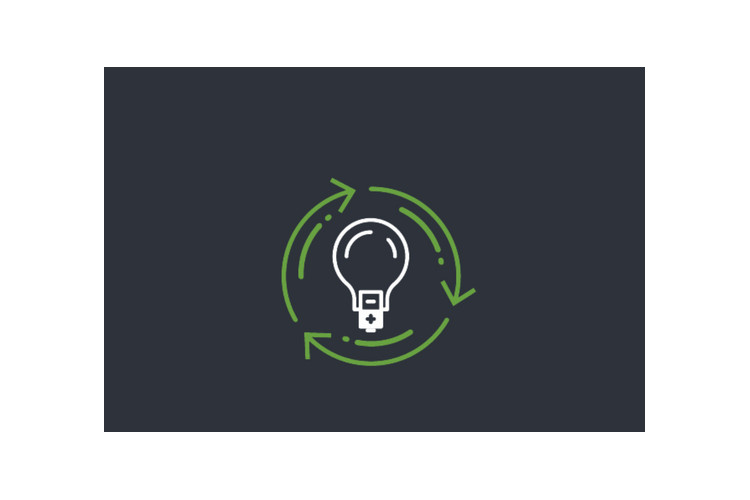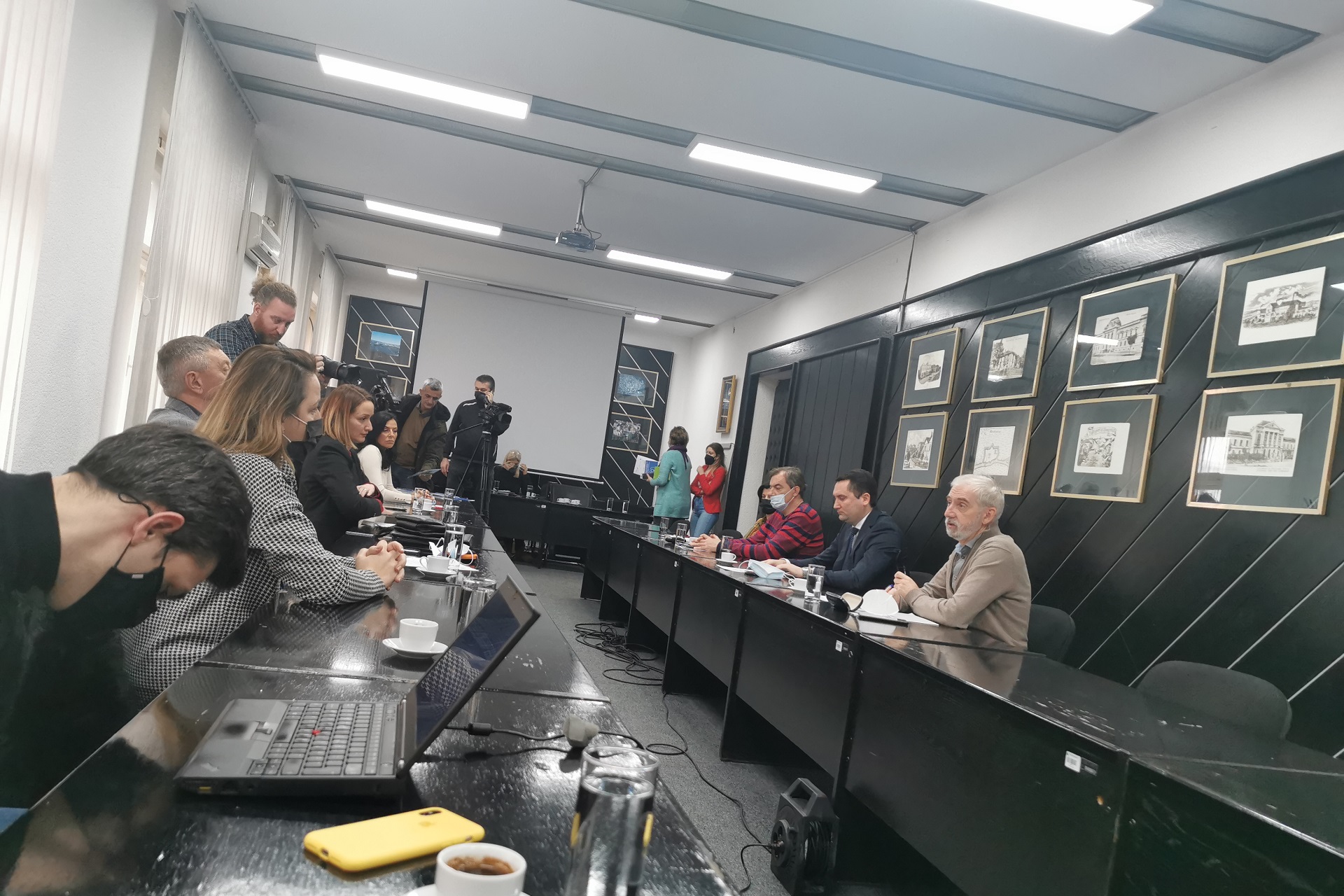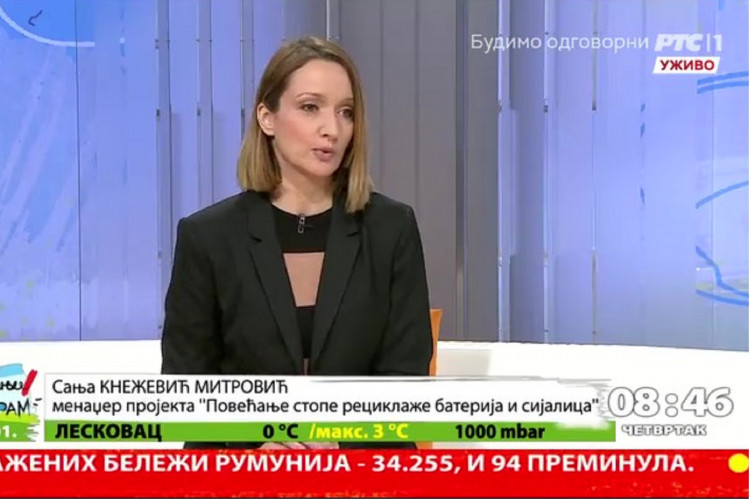Bins for collecting waste batteries and light bulbs set up in Stari Grad
Public collection of used batteries and light bulbs has officially started at the premises of Urban Municipality of Stari Grad, which joined Kragujevac in collecting this type of waste within the project "Increasing the recycling rate of batteries and light bulbs". The project is implemented by NALED, with the support of the German Organization for International Cooperation - GIZ and partners from the recycling industry.
The main reasons for the underdevelopment of the collection network for batteries and light bulbs in Serbia are the lack of disposal containers and facilities for battery treatment, the lack of a system for separate collection of batteries and light bulbs from households, and the lack of deisgnated locations for collecting this waste.
The Mayor Radoslav Marjanović pointed out that the activities of the Municipality of Stari Grad have so far focused on improving the quality of the environment.
„Stari Grad has been supporting the actions aimed at raising awareness about proper recycling for years, and we are participating in numerous projects in the field of environment protection. We will continue to nurture the positive practice, and for this reason we decided to join this socially responsible project as well. The containers for disposing batteries and light bulbs have been set up in our municipality (Service Center, Makedonska 42 - entrance from Nusiceva), and citizens and employees will have the opportunity to influence the environment with their example," said Marjanovic.
Slobodan Krstović, Sustainable Development Director in NALED, emphasized the importance of improving the collection system for waste batteries and light bulbs in Serbia.
„Within the project, in December we also set up the containers for light bulbs and batteries in public institutions in Kragujevac, that generates a strong response from citizens and gave positive results, so we decided to keep working together to improve environmental awareness and talk about the importance of recycling this type of toxic waste", Krstović pointed out, adding that the collection of batteries and light bulbs at certain faculties within the University of Belgrade will start by the end of the month.
Apart from the municipality of Stari Grad, the initiative will be joined by 13 faculties of the University of Belgrade: additional bins will be placed at the Faculty of Physical Chemistry, Faculty of Medicine, Faculty of Technology and Metallurgy, Faculty of Biology, Faculty of Organizational Sciences, Faculty of Mechanical Engineering, Faculty of Civil Engineering Faculty, Faculty of Pharmacy, Faculty of Political Science, Faculty of Physics, Faculty of Philology, Faculty of Electrical Engineering and Faculty of Engineering in Bor.
Sanela Veljkovski, Project Manager in GIZ, indicated that the project is being implemented within development cooperation program with the private sector develoPPP.de, financed by the German Federal Ministry of Economic Cooperation and Development, with the main goal being to find a systemic solution for the collection of waste batteries and light bulbs.
"This project supports the achievement of Serbia's goals in reducing the amount of EE waste and batteries that end up in landfills and the state's efforts in the EU accession process, and this positive trend is expected to continue and spread across the country," Veljkovski said.
Nikola Egić, Director of recycling center "Božić i sinovi", points out that light bulbs with mercury fibers should not end up in nature because they can contaminate a larger amount of water and soil.
"If this type of waste is not handled conscientiously, i.e. if it is not handed over to an authorized recycling center, it can adversely affect not only the environment, but can also endanger people's lives." "Serbia is technologically very well equipped for the recycling of light bulbs, however, the collection channels are insufficiently developed," said Egić.
Marija Pivnevi, Director of "E-recycling Belgrade" company, drew attention to the importance of such projects and expressed hope that more organizations and companies will cooperate with authorized waste management operators in the future.
"In order to improve the waste management system, it is necessary to include local governments, as well as organizations, as important elements in this process. "I am glad that the Municipality of Stari Grad recognized the importance of the project" Increasing the recycling rate of batteries and light bulbs" and I believe that this model will influence other municipalities and cities in educating citizens about the importance of recycling this type of waste," said Pivnevi.
NALED has launched the project "Increasing the recycling rate for batteries and light bulbs" which is implemented within the develoPPP program funded by the German Federal Ministry for Economic Cooperation and Development through development agency (GIZ), in order to improve the collection and recycling rate of specific special waste streams – batteries and light bulbs, to create regulatory solutions and introduce incentives for battery collection.



